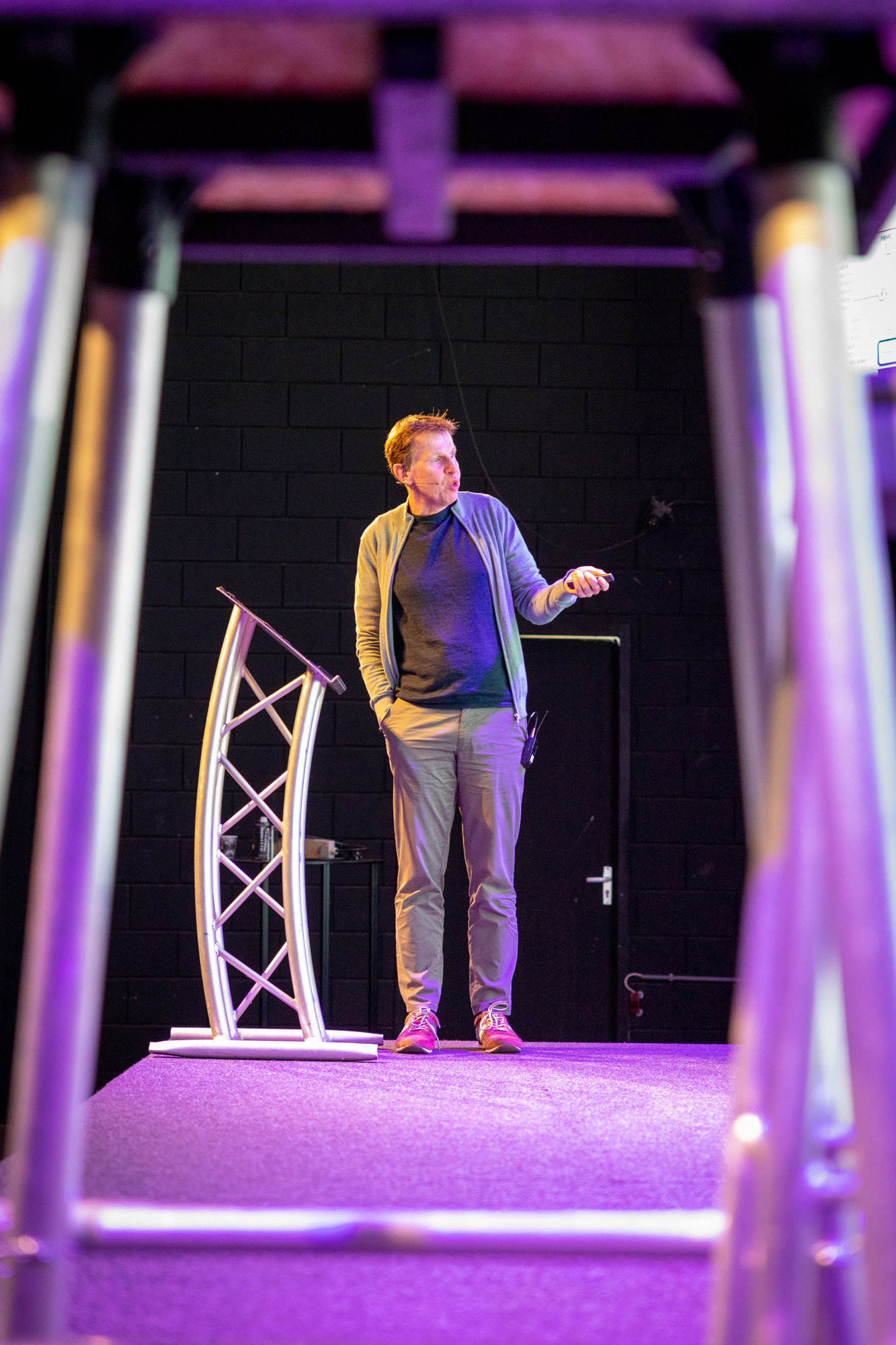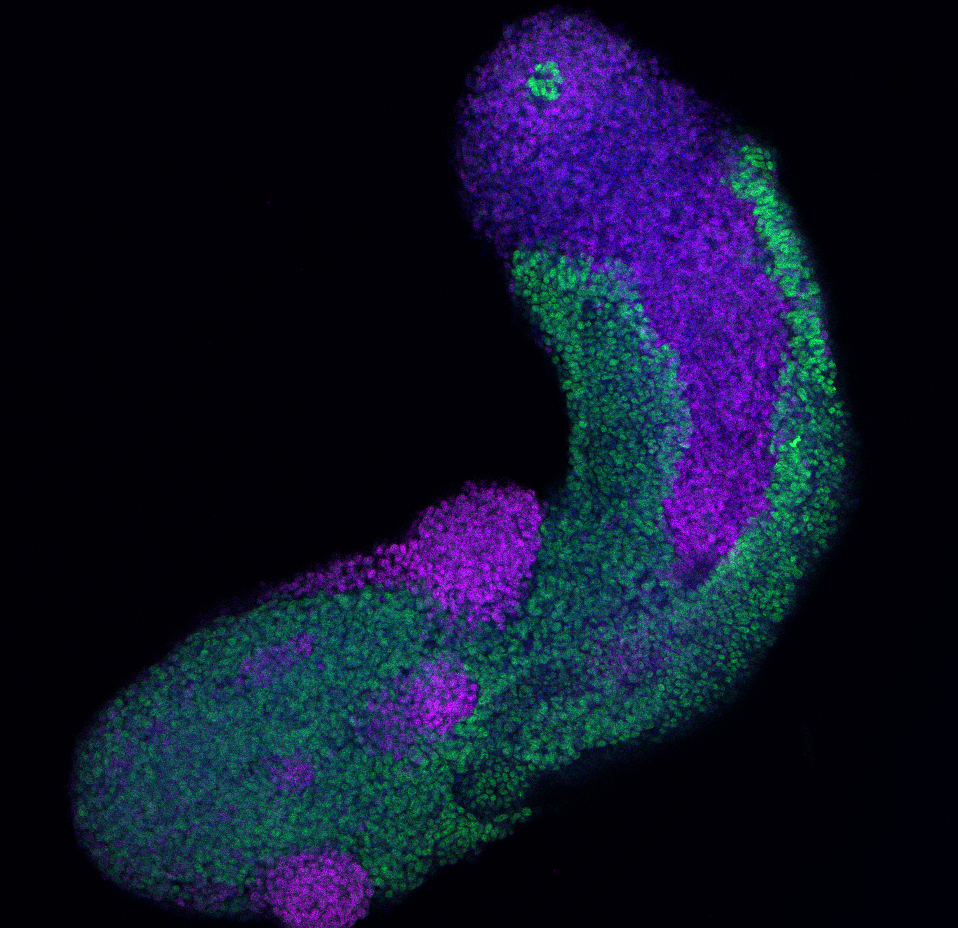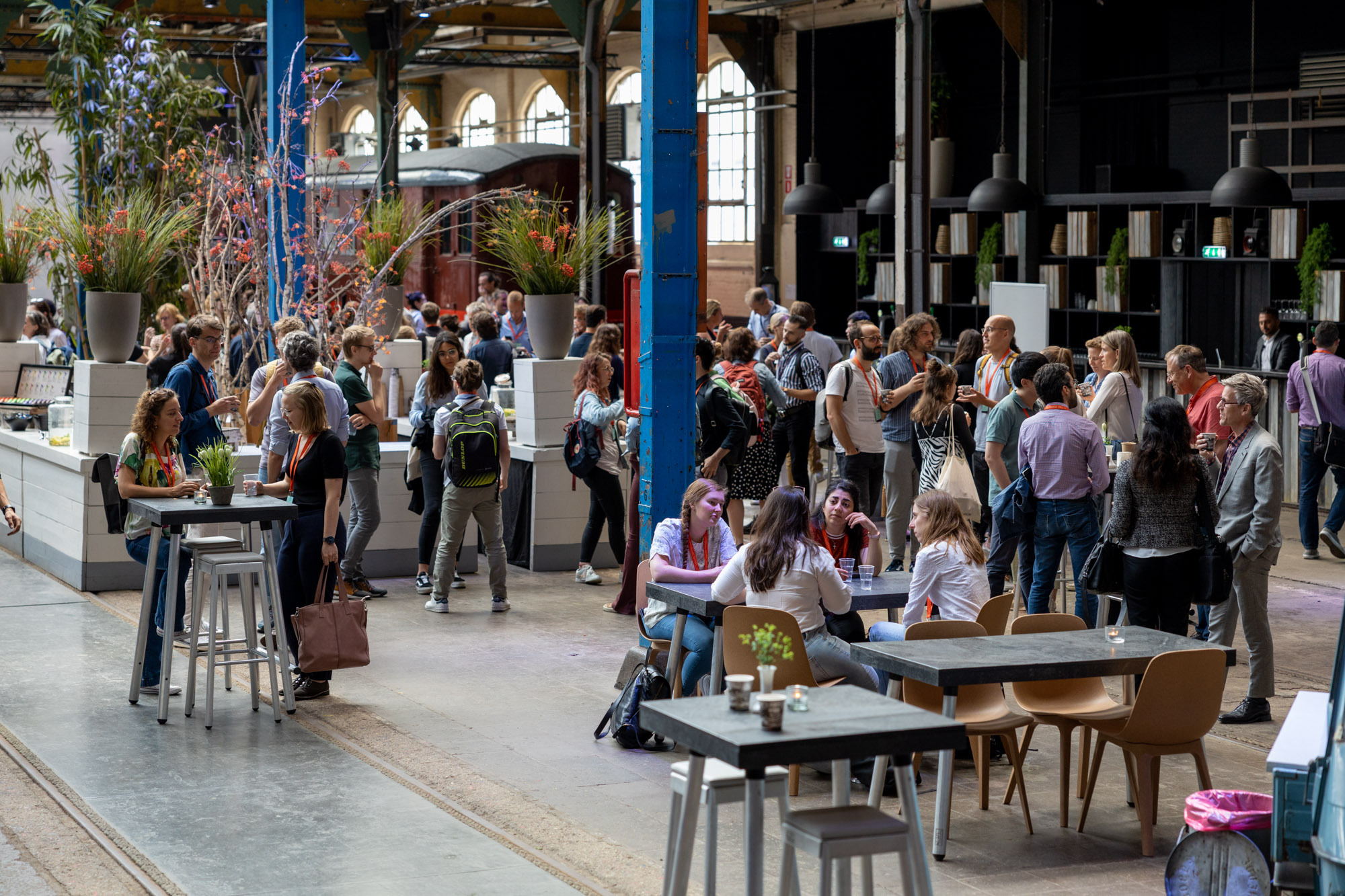After two editions of a socially distanced Oncode Annual Scientific Meeting, we were finally able to organize an all-live, two-day event, packed with the latest scientific findings. The conclusion: Oncode Institute is more alive than ever and ready for Phase 2!
On July 4th and 5th, almost 400 Oncode researchers gathered in De Rijtuigenloods in Amersfoort, indulging themselves in hot-of-the-press science conducted by their colleagues. Participants had the opportunity to listen to more than 20 scientific talks, divided in six research subjects spanning all the Oncode research fields, gather around posters and discuss the latest findings – and, of course, enjoy each other’s company and do live networking over coffee and drinks.
Breakout sessions
Apart from the plenary program, researchers could attend breakout sessions on different topics. The Data Horror Escape Room focused on Research Data Management and how to write a good Data Research Management Plan. During the Patient Engagement Session, researchers met with cancer patients to discuss how patients and researchers can learn and inspire each other. The session Strategies to maximize grant funding success gave researchers the opportunity to learn about advanced grant planning, efficient proposal writing and how to manage your collaborators. Finally, the last breakout session was the launch of Oncode’s Entrepreneurship series. This seminar meant to bust key myths around entrepreneurship and provide researchers with actionable information using concrete examples and case studies.
From bedside to bench
In his keynote, Oncode Investigator Ton Schumacher (NKI) expressed the need to think outside the box as a cancer researcher. We shouldn’t only work bench to bedside, Schumacher says, but also the other way round – bedside to bench. By learning from clinical data, we can make sure the patient benefits optimally. Schumacher showed an example from his own lab, using clinical data to inspire research on cancer therapeutics. While the use of adjuvant immune checkpoint blockade therapies after surgery has revolutionized the treatment of late-stage cancer, the neoadjuvant use of these therapies prior to surgery proves to be promising as well.

Schumacher and his colleagues are now looking into the fortification of existing immune system blockade therapies, so that it might be possible to offer patients a therapy that is so personalized and effective, we might be able to refrain from cancer surgery altogether. His message is clear: researchers should always be open to novel clinical use cases. With the much-needed assistance of engineering, recognizing cell types and locations for cancer-specific immune activation may lead to that much-needed push forward in immune-oncology.
Translating research
Valorization is a very important pillar for Oncode. A dedicated team is available, helping researchers to translate their research into actual clinical benefit for patients. The Valorization Team helps in many ways, such as initiating new collaborations and consortia and the team takes care of technology transfer. This means patenting and licensing scientific findings as well as creating spin-off companies, while at the same time safeguarding the scientific aspects.
Two Oncode Investigators gave a talk about their experiences with the Valorization Team. Rebekka Schneider (Erasmus MC) is one of our Oncode Investigators who decided to form a partnership with a pharmaceutical company. With the help of Oncode Institute, she has been able to set-up a proof-of-concept study for a novel therapy that developed into a collaborative research program for licensing and repurposing of an existing drug. Oncode Investigator Madelon Maurice (UMC Utrecht) was able to develop a promising idea into a successful pitch to investors, paving the way to start up her company Laigo Bio. She was able to focus on the scientific research and development of the company, while the Valorization Team formed a network of stakeholders around her and helped to move the business process forward.
Imaging magic
A lot of magic happens in our labs – not only in the form of cooperation, but also in the form of imaging. While lots of our researchers shoot the most wonderful microscopy pictures from their experiments, sadly, those often stay hidden somewhere on a server. To encourage our researchers to share some of their magic, we organized the third edition of the Scientific Art Prize.
From many submissions, the independent jury selected two of the best. Runner-up Maaike Lambers (Kops group) pictured cellular separation at the DNA level in Mitotic Webs. With Self-organizing Life, winner Luca Braccioli (De Wit group) imaged a composition of cells forming the first stages of embryonal development. Both researchers were awarded a monetary prize, as well as a large print of their own work, provided by pArt of Science. The video is now online.

Accelerating science
Some Oncode projects deserve a bit more attention because of their over-arching nature, combined with their importance to cancer research. These Accelerator Projects are collaborations between Oncode research groups. At the Annual Meeting, two of these teams were given the chance to present their project.
Bas van Steensel (NKI) presented the Pericode project, a cooperative effort from seven Oncode labs. The aim of Pericode is to find regulatory mutations in the non-coding cancer genome – a part of the genome that is largely unstudied, yet all but trivial. The researchers of the Pericode project are working on machine learning models to predict gene activity from sequence material alone. With this, they hope to gain insight in the genes that are affected in cancer, as well as their function.
Sjoerd van der Burg (LUMC) started an Accelerator Project with other Oncode labs, wondering about the role played by other immune cells than the T cell in successful immunotherapy. The recognition of other players in this field, like certain subsets of macrophages, might bring new insights. In time, immobilizing other leukocyte subsets may lead to therapeutic alternatives for patients suffering from tumors that are difficult to treat.
Looking back – the first five years
After the first five years of Oncode, it’s also time to look back and see what we have achieved in this seminal period. Oncode is a success story of finding common ground in science. We’re entering the next phase with full confidence in the future.
Author: Koen Scheerders
